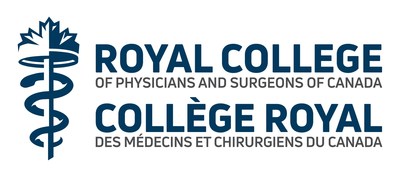New Task Force outlines how to embed AI and digital technology into physicians' training and practice
OTTAWA, April 23, 2020 /CNW/ - The Royal College of Physicians and Surgeons of Canada's Task Force on Artificial Intelligence (AI) and Emerging Digital Technologies unveiled twelve foundational recommendations on how we can prepare the physicians of today – and tomorrow – for the massive technological changes coming to their practice.

"These recommendations are the beginning of a national conversation on how we will address AI and emerging technologies, particularly as it relates to specialty medicine training and ongoing professional development," says Dr. Richard Reznick, Chair of the Task Force and President-Elect of the Royal College. "What is clear is that AI won't replace medical specialists. That said, it will be critical that all future specialists embrace AI, as this technology will impact all specialties, without exception.
"We acknowledge the release of this report during a global pandemic. While not the focus of our report, the importance of AI and emerging digital technologies for supporting and responding to unprecedented shifts in health care become even more pronounced as we adhere to expectations of physical distancing while treating patients (e.g. telehealth, robotics) and challenges us to rethink how we prepare residents and Fellows for rapid deployment of new and emerging AI-technologies," he adds.
Members of the Task Force include Fellows of the Royal College and AI experts, who consulted widely with key stakeholders, interviewed 22 key experts and received responses to a survey from over 4,000 Fellows and Resident Affiliates to inform their findings. These recommendations aim to inform the future of care and physician training in Canada.
Highlights include that the Royal College:
- Continuously monitor the health of individual disciplines, but for now, NOT make alterations to the number and complement of specialist physicians being trained in Canada;
- Consider introducing a new discipline in clinical informatics;
- Promote the development of new opportunities that support Fellows and Resident Affiliates in working with innovators in the public, not-for-profit and private sectors to co-develop and spread AI and emerging digital technologies;
- Integrate digital health literacy competencies into residency training and professional development; and
- Promote, enable and extend scholarship, education and other forms of support to physicians that increase their knowledge of the social justice implications of AI-based technologies.
"The role of the Royal College is to prepare and empower our members with the tools, skills and knowledge they need throughout their careers," says Dr. Susan Moffatt-Bruce, Royal College CEO. "AI will fundamentally change how we train and work. We look forward to working with medical school and health care partners on this exciting initiative."
The full report is available at http://www.royalcollege.ca/rcsite/health-policy/initiatives/ai-task-force-e.
The Royal College of Physicians and Surgeons of Canada is the national professional association that oversees the medical education of specialists in Canada. We accredit the university programs that train resident physicians for their specialty practices, and we administer the examinations that residents must pass to become certified as specialists. In collaboration with health organizations and government agencies, the Royal College also plays a role in developing sound health policy in Canada.
SOURCE Royal College of Physicians and Surgeons of Canada
